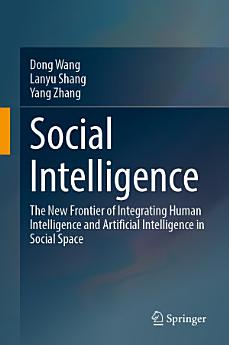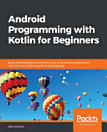Social Intelligence: The New Frontier of Integrating Human Intelligence and Artificial Intelligence in Social Space
About this ebook
In this book, a set of novel human-centered AI techniques are presented to address the challenges of social intelligence applications, including multimodal approaches, robust and generalizable frameworks, and socially empowered explainable AI designs. The book then presents several human-AI collaborative learning frameworks that jointly integrate the strengths of crowd wisdom and AI to address the limitations inherent in standalone solutions. The book also emphasizes pressing societal issues in the realm of social intelligence, such as fairness, bias, and privacy. Real-world case studies from different applications in social intelligence are presented to demonstrate the effectiveness of the proposed solutions in achieving substantial performance gains in various aspects, such as prediction accuracy, model generalizability and explainability, algorithmic fairness, and system robustness.
About the author
Dong Wang: Dong Wang is a professor in School of Information Sciences and Siebel School of Computing and Data Science (affiliated) at the University of Illinois at Urbana Champaign (UIUC). His research interests lie in social sensing and intelligence, human-centered AI, and big data analytics. Dong Wang has published over 200 technical papers in peer reviewed conferences and journals. His work has been applied in a wide range of real-world applications such as data reliability, social network analysis, disaster response, AI for science, and AI for social good. His research on social sensing and intelligence resulted in software tools that found applications in academia, industry, and government research labs. He also authored three books: “Social Intelligence” to be published by Springer in 2025, “Social Edge Computing” published by Springer in 2023, and “Social Sensing” published by Elsevier in 2015. He is the recipient of NSF CAREER Award, Google Faculty Research Award, ARO Young Investigator Program (YIP), the Best Paper Award of 2022 ACM/IEEE International Conference on Advances in Social Networks Analysis and Mining (ASONAM), the Best Paper Award of 16th IEEE Real-Time and Embedded Technology and Applications Symposium (RTAS) and the Best Paper Honorable Mention of 2025 ACM CHI and 8th IEEE SmartComp. He serves as an associate editor of IEEE Transactions on Big Data, Frontiers in Big Data, and Social Network and Analysis Journal (SNAM). He is also an IEEE Senior Member and ACM and AAAI Member.
Lanyu Shang: Lanyu Shang is an assistant professor in Computer Science at the Loyola Marymount University. She earned her Ph.D. in information sciences from the University of Illinois Urbana-Champaign. Prior to this, she received an M.S. in Data Science from New York University and a B.S. in Applied Mathematics from the University of California, Los Angeles. Her research interest lies in human-centric AI, human-AI collaboration, social media analysis, AI for social good, and applied AI. Her work has been published in top venues in data mining and machine learning/AI, such as The WebConf, ICWSM, AAAI, IJCAI, and IEEE Big Data. She is also the recipient of the Best Paper Award at ACM/IEEE ASONAM 2022, the Best Paper Honorable Mention at IEEE SmartComp 2022, the Outstanding Graduate Student Teaching Award from the University of Notre Dame, and the N2Women Young Researcher Fellowship.
Yang Zhang: Yang Zhang is an assistant professor in Computer Science and Software Engineering at the Miami University. Previously, he was a Postdoctoral Research Associate at UIUC and a W. J. Cody Research Associate at Argonne National Laboratory. Yang earned his Ph.D. in Computer Science & Engineering from the University of Notre Dame, an M.S. in Data Science from Indiana University Bloomington, and a B.S. in Software Engineering from Wuhan University. His research focuses on human-centered AI, human-AI collaboration, deep learning, and generative AI. He has authored over 80 peer-reviewed conference and journal papers published in top venues such as ACM CSCW, ACM Web Conference, AAAI, IJCAI, and IEEE BigData. His work has been recognized with prestigious honors, including the Outstanding Graduate Research Award from the University of Notre Dame and the W. J. Cody Research Associateship at Argonne National Laboratory.




